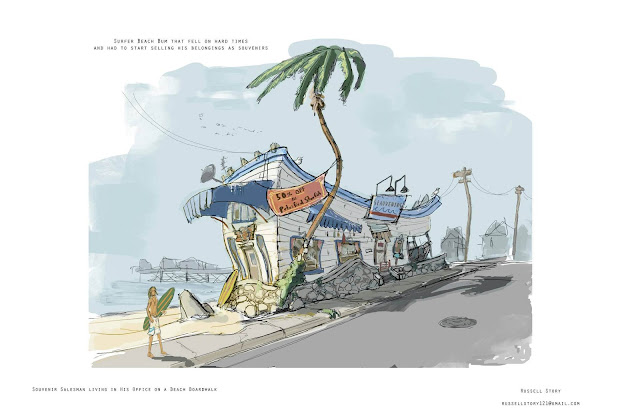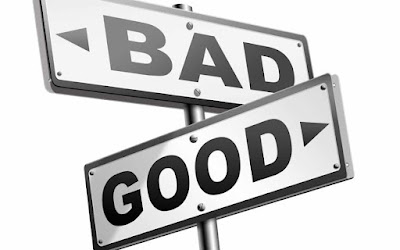Featured
- Get link
- X
- Other Apps
Capitalism vs. Crony Capitalism
Capitalism vs. Crony Capitalism: Those with a Socialist or Marxist mind set conflate these two ideas in order to vilify Capitalism. This is a nice piece from Jay Cost that helps bring a little clarity to this topic. Don’t be fooled people.
Crony capitalism. What is it? Why is it so bad?
To answer these questions, let’s think about good, old-fashioned capitalism. It is premised on the free exchange of goods or services between independent agents.
Let’s say I want to buy some cereal. Steve’s Grocery is selling my brand for $4. Ted’s Grocery has it for $5. I buy from Steve, which creates the most value for both me and him. Meanwhile, Ted now has an incentive to cut his costs so he can compete better. Replicate this kind of transaction billions of times a day, 365 days a year, and that is how our economy functions and grows. Or at least how it’s supposed to.
Now, what about crony capitalism? Let’s say it’s the government that wants to buy some cereal. More specifically, the House of Representatives’ Committee for Cereal Acquisition is put in charge of the task. Steve still sells it for $4. Ted for $5. I buy from Steve. He’s the low price man. But the Committee for Cereal Acquisition buys from Ted. Why?
Because Ted lobbied the committee. Because his corporate headquarters is in the chairman’s district. Because he gave more campaign contributions. Because he promised a lobbying gig to an undecided committee member who plans to retire next year. That is how crony capitalism works.
And it happens all throughout the government—from defense contracting, to farm subsidies, clean energy programs, infrastructure spending, affordable housing, food stamps, Medicare, Obamacare, tax policy. You pretty much name it. Crony capitalism is there.
Capitalism is moral because it is premised on a voluntary exchange between independent parties – who agree to the deal only because it creates value for everybody. Crony capitalism is immoral because one of the parties—the government—has been bought off.
This creates three problems. First, it is unfair. Politicians are spending the public’s money, but not for the public interest. Instead, they reward friends, supporters, or themselves. Our Constitution grants Congress the power to provide for the general welfare. Crony capitalism violates this sacred principle.
Second, it is incredibly wasteful. In our cereal example, the government overpaid by going with Ted instead of Steve. That’s obviously a waste of taxpayer money. In fact, it is really stealing from the taxpayer. Here’s more waste. Ted had to spend money to lobby the government to get the contract. So, he didn’t get all of that dollar out of the transaction. That’s money that could have been spent making a better product or used in some other constructive way. Economists call this deadweight loss. And it can be substantial.
Moreover, crony capitalism distorts the broader economy. In some industries—like healthcare, student loans, home mortgages, and aerospace—the government is one of the biggest purchasers of goods or services. So its politicized decisions can have wide-ranging and detrimental effects. An entire industry can become, in effect, a client of the government. When that happens its goal is not to build a better mousetrap, but to keep politicians happy. How much does crony capitalism cost society per year? It is hard to say precisely, but the number reaches into the tens of billions of dollars, maybe beyond.
Third, it tempts politicians to break the law. Once politicians feel free to spend the public’s money for their own political purposes, they are just a hop-skip-and-a-jump away from doing so to line their own pockets or pump up their campaign funds or both.
So what can we do? Our first task is to recognize that government must have limits. Of course, there has to be a national authority to set the parameters for society; that establishes the rules of the game and enforces them. But when we expect the government to promote an industry, tinker with some sector of the economy, help some important voter group, we create the groundwork for crony capitalism and all the bad things that come with it–favoritism, waste, theft, and other forms of corruption.
America’s seventh President, Andrew Jackson, had a very useful perspective on this issue. “There are no necessary evils in government,” he said. “Its evils exist only in its abuses. If it would confine itself to equal protection, and, as Heaven does its rains, shower its favors alike on the high and the low, the rich and the poor, it would be an unqualified blessing.”
Jackson had it right. A limited government confined to equal protection can’t play favorites. Limited government. If getting rid of crony capitalism is the goal, it all starts there.
Popular Posts
How should followers of Jesus Christ vote in the USA?
- Get link
- X
- Other Apps
The Moral Argument for God’s Existence.
- Get link
- X
- Other Apps



Comments
Post a Comment